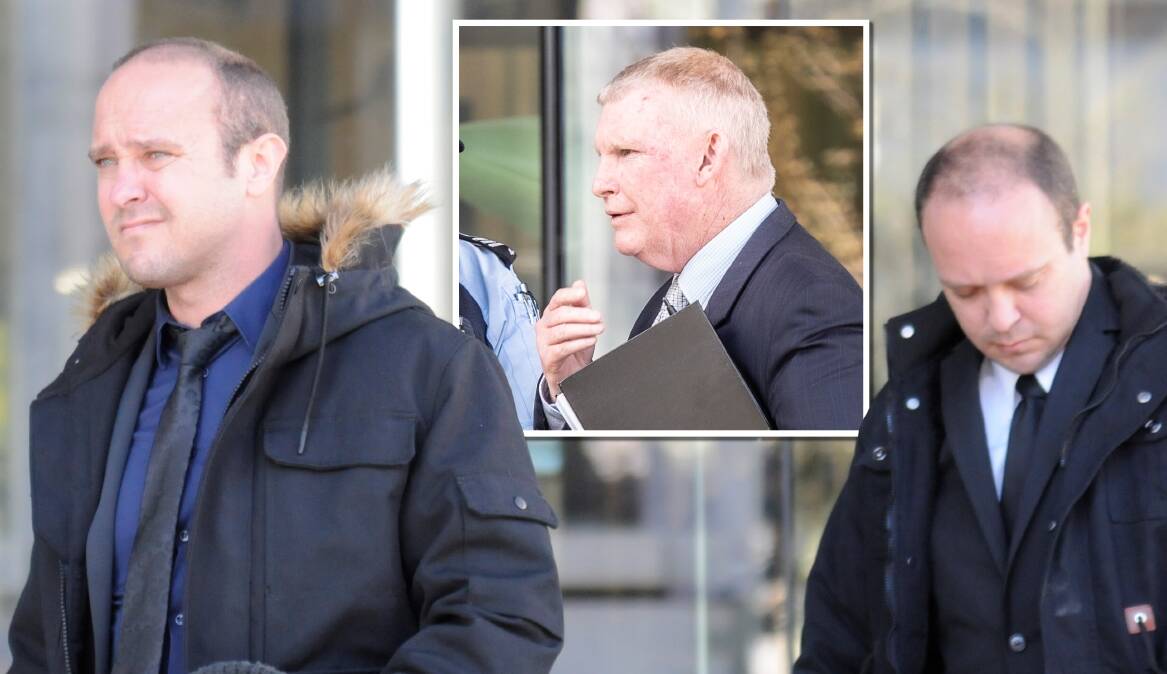
A judge has slammed a Canberra detective for trying to "cover up" the mishandling of evidence, remarking that "lawlessness on the part of police encourages lawlessness in our society".
"It does not aid the course of justice for police to do the wrong thing," Justice Chrissa Loukas-Karlsson said in an ACT Supreme Court judgement published on Thursday.
"It may be that certain television shows encourage the idea that police breaking the rules is a good idea.
"It is not. The end does not justify the means."
Justice Loukas-Karlsson made those comments as she upheld an appeal brought by twin brothers Joshua Rod Tiffen and Kenan Lee Tiffen, who were found guilty last year of using hidden cameras to spy on their female tenants in Forde.

Magistrate Glenn Theakston found former Australian Federal Police officer Joshua Tiffen and electrician Kenan Tiffen, 45, guilty of three counts each of capturing visual data in an indecent invasion of privacy.
The brothers, represented by Hugo Law Group, later appealed against the verdicts.
They argued Mr Theakston had been wrong to admit evidence found on two electronic devices, including a laptop that belonged to Joshua Tiffen.
The evidence found on the computer was obtained unlawfully because police examined it outside the expiration of a 30-day time limit.
Mr Theakston found Detective Leading Senior Constable Trent Madders "deliberately attempted to cover up that breach" by redacting an entry in his notebook and falsely denying that he had been told the device was examined out of time.
Notwithstanding this, he decided the evidence found on the computer could still be considered when the charges reached a hearing in the ACT Magistrates Court.
In the Supreme Court on Thursday, Justice Loukas-Karlsson found this was a "significant" error.
She agreed with Slade Howell and Jack Pappas, appeal counsel for the Tiffens, that "the cover-up by detective Madders cannot be condoned by the court".
"In this case, an attempt was made to conceal an impropriety from a court," the judge said.
"This court cannot condone such illegality. It should go without saying that police officers should not lie in court."
Justice Loukas-Karlsson ultimately set aside the six guilty verdicts and remitted the matter to the Magistrates Court for the relevant charges to be redetermined.
Detective Leading Senior Constable Madders has previously addressed the adverse findings Mr Theakston made about his conduct, saying he respected the magistrate's decision but disagreed with the comments.
"I believe that I did not fully articulate my reasoning around a redaction, and I did not answer questions well under cross-examination," he wrote in a statement.
"I maintain that I did not attempt to cover up a breach of the legislation."
The detective made those comments in a statement to a recent board of inquiry that examined the unrelated investigation of rape allegations made by former Liberal Party staffer Brittany Higgins.

Detective Leading Senior Constable Madders was, for a period of time, the informant, or case officer, on that investigation.
He wrote that he did not believe there was sufficient evidence to charge suspect Bruce Lehrmann, and revealed he felt "physically ill" when a superior officer informed him that was going to happen.
Detective Leading Senior Constable Madders refused to sign a summons for Mr Lehrmann to appear in court, prompting the superior officer to take over as the informant.
Mr Lehrmann's trial, last October, was abandoned because of juror misconduct.
He maintains his innocence in the wake of his case subsequently being discontinued.







